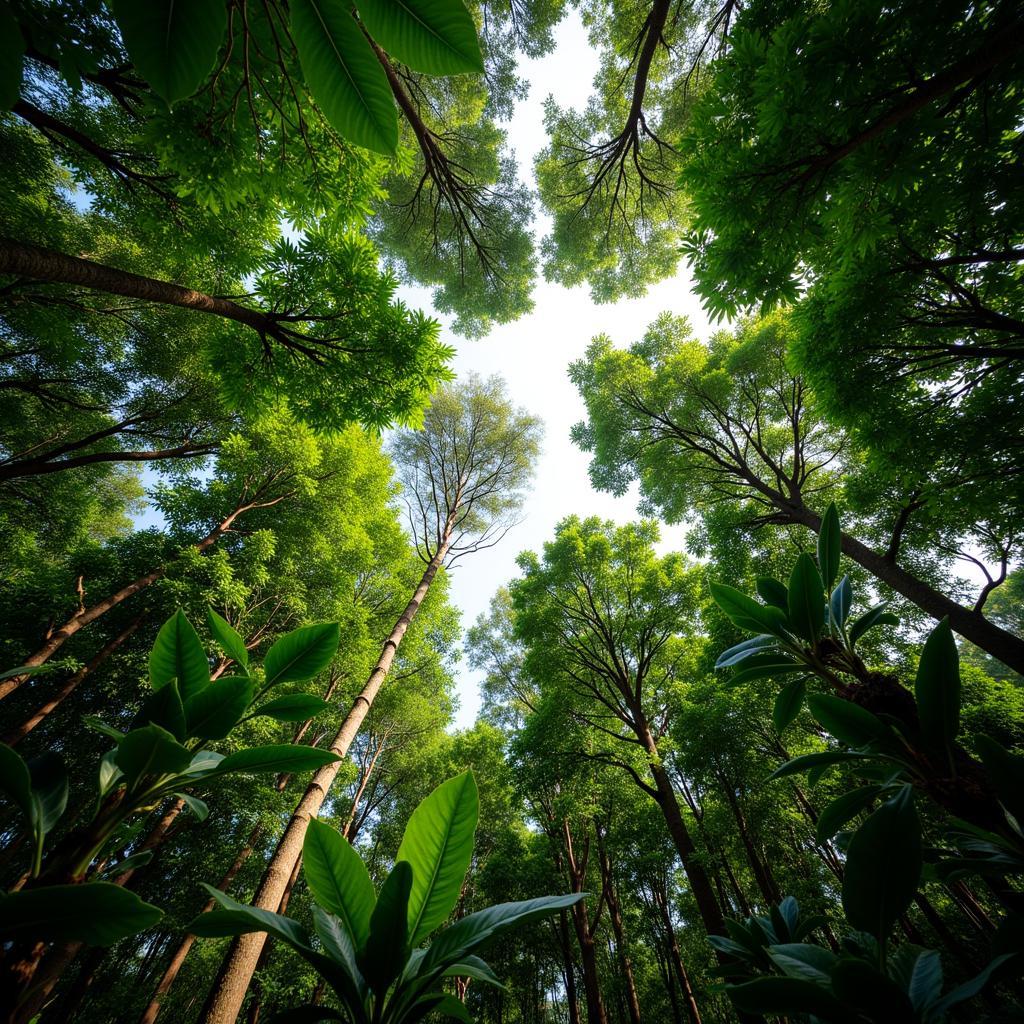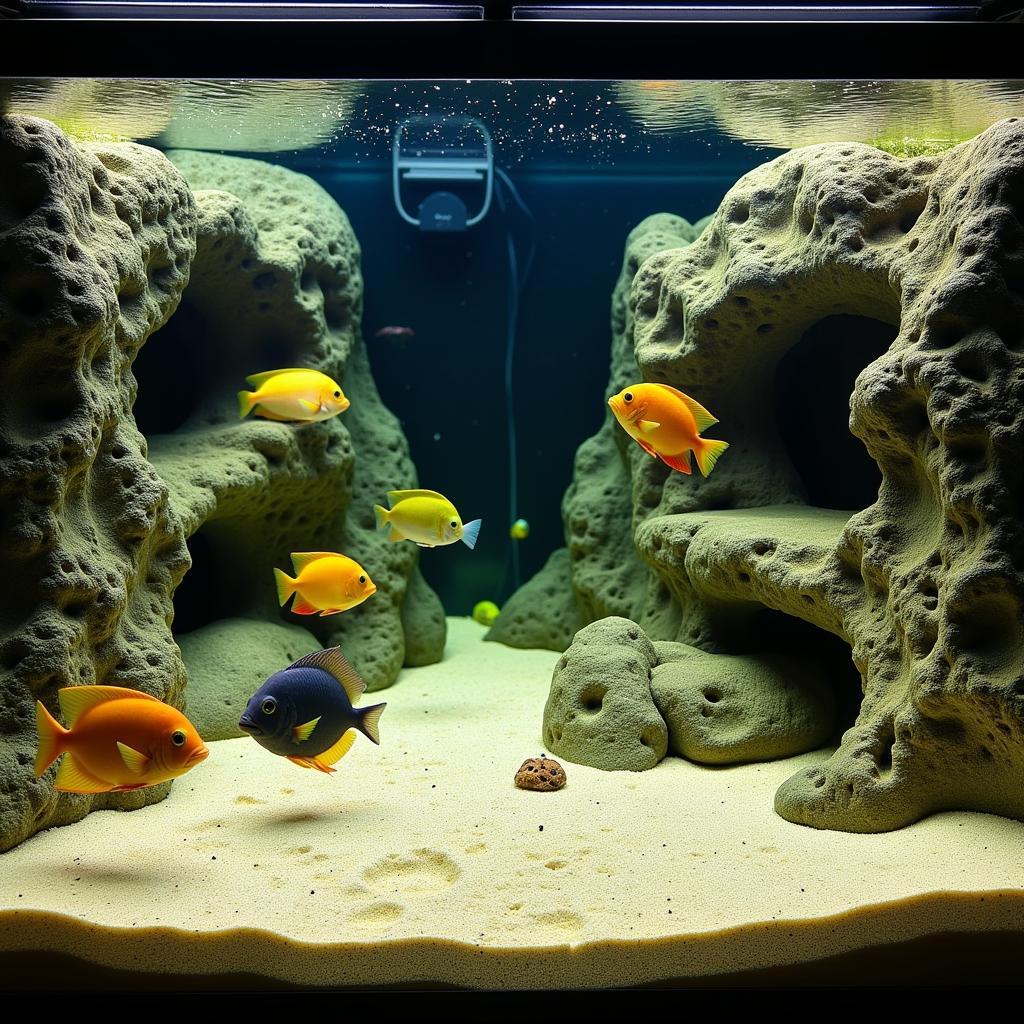The African Elephant and Its Mud Rituals: More Than Just a Spa Day
The sight of an African Elephant With Mud caked on its skin is iconic. It’s a scene that speaks to the raw, wild beauty of the African savanna. But this muddy coating isn’t just for show. It’s a vital part of elephant life, serving a multitude of purposes, from protection against the harsh sun to social bonding and beyond.
The Science Behind the Mud Bath
For an animal as large as an African elephant, regulating body temperature is no small feat. With its thick skin and limited sweat glands, the African heat can be brutal. This is where the mud comes in.
Mud: Nature’s Sunscreen and Insect Repellent
Think of mud as an all-natural sunscreen and insect repellent rolled into one. The thick, clay-like mud acts as a physical barrier, reflecting the sun’s harmful rays and preventing sunburn. This is especially important for sensitive areas like the ears and around the eyes.
The mud also deters pesky insects. Flies and mosquitoes find it difficult to land on mud-covered skin, offering the elephants some much-needed relief from bites.
More Than Just Skin Deep: The Social Significance of Mud
While the physical benefits of mud are undeniable, the story doesn’t end there. Mud baths are also an important part of elephant social life.
Mud Wallowing: A Family Affair
Elephants are highly social animals, and mud wallowing is often a family affair. Young calves learn by observing their elders, mimicking the way they use their trunks to fling mud onto their backs. These shared experiences strengthen family bonds and contribute to the passing down of vital survival skills.
Mud as a Communication Tool
Interestingly, mud might even play a role in elephant communication. Some researchers believe that the scent of drying mud, combined with an individual elephant’s unique scent, could act as a way for elephants to recognize each other from a distance.
Mud and Conservation: A Delicate Balance
The sight of an African elephant with mud is a testament to the species’ adaptability and resilience. However, human activities are increasingly threatening this delicate balance.
Habitat Loss and the Future of Mud Baths
As human populations grow and expand into elephant territory, access to natural mud wallows is becoming limited. This can have serious consequences for elephant health and well-being.
Supporting Conservation Efforts
By understanding the importance of mud in the lives of African elephants, we can better appreciate the need to protect their habitats. Supporting conservation organizations that work to preserve elephant corridors and maintain access to natural resources like mud wallows is crucial for the long-term survival of these magnificent creatures.
Conclusion: Appreciating the Mud-Caked Giants
The next time you see an image of an African elephant with mud, remember that there’s more to this behavior than meets the eye. It’s a story of survival, social bonding, and the intricate connection between these animals and their environment. By protecting their habitats, we ensure that future generations can continue to witness the spectacle of these mud-caked giants roaming free.
FAQs About African Elephants and Mud
1. Why do elephants throw mud on themselves?
Elephants throw mud on themselves for a variety of reasons, primarily to regulate their body temperature, protect their skin from the sun and insects, and as part of their social interactions.
2. Do all elephants use mud?
While all elephants can benefit from mud baths, access and usage can vary depending on factors like geographical location and individual preferences.
3. Is mud essential for elephant survival?
Mud is considered a vital resource for elephants, contributing to their overall health and well-being.
For more fascinating insights into the world of African wildlife, check out these resources:
- Explore the diverse animal kingdom in our African animals section.
- Dive deeper into the captivating African elephant behaviour and discover more about their social dynamics.
If you need any assistance or have any inquiries, please do not hesitate to contact us. Our dedicated customer support team is available 24/7 to assist you. You can reach us via:
- Phone Number: +255768904061
- Email: [email protected]
- Address: Mbarali DC Mawindi, Kangaga, Tanzania.


